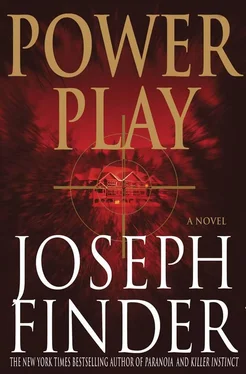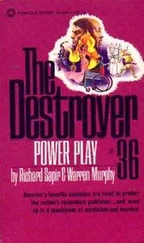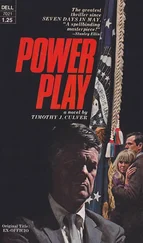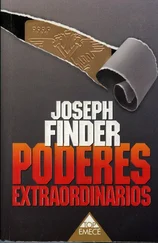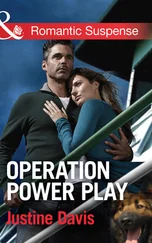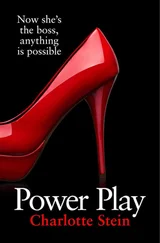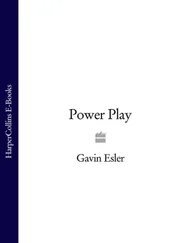"Chicken rivets."
"Chicken rivets," she repeated. "I don't follow." People around us were listening now.
Maybe she didn't know as much about the crash as she'd claimed. But whether she did or not, she wanted me to explain, which was tricky: even though she'd been the EVP for Commercial Airplanes at Boeing before she came to Hammond, I had no idea how much she actually knew about building airplanes. Lots of executives rely on their experts to tell them what to think. I didn't want to talk over her head, but I also didn't want to condescend.
"Well, so Eurospatiale's new plane is mostly made out of plastic, right?"
She gave me a look. "If you want to call carbon-fiber-reinforced polymer 'plastic' instead of composite."
You got me there, I thought. So she did know a thing or two. "Most of the senior guys still don't trust the stuff."
"The 'senior guys' at Hammond?"
"Everywhere."
She knew what I meant, I was pretty sure-the senior execs at all the airplane manufacturers were inevitably older, and what they knew was metal, not composites.
"So?"
"So all the flaps on the wings are made of composite, too," I said. "But the hinges are aluminum. On the wing side, they're bolted to the aluminum rib lattice, but on the flaps, they're cut in."
"The hinges are glued on?"
"No, they're co-cured-basically glued and baked together. A sort of metal sandwich on composite bread, I guess you could say. And obviously Eurospatiale's designers didn't quite trust the adhesive bond, so they also put rivets into the hinges, right through the composite skin."
"The 'chicken rivets,'" she repeated, unnecessarily loud, I thought. "Called that why?"
I glanced up and saw that more and more people around the table were watching us. I tried not to smile. "Because you only do it if you're 'chicken'-scared the bond won't hold. Like wearing belts and suspenders."
"But why are 'chicken rivets' a problem?"
"When you put rivets through composites, you introduce micro-cracks. Means you run the risk of introducing moisture. Which is clearly what happened in Paris."
Barlow signaled one of the waiters over and told him he wanted to try whatever red wine they were pouring.
"How can you be so sure?" she said.
"The photographs. You can see cracks at the stress concentration points. You can also see the brooming, the-"
"Where the composites absorbed water," she said impatiently. "But the plane was new."
"It made maybe twenty test flights before the show. Flew out of warm, rainy London up to subzero temps at forty thousand feet. So the damage spread fast. Weakened the joints. Then the flap tore off its hinge and hit the fuselage."
"You're sure."
"I saw the pictures. Nothing else it can be." Ali looked at me, a glint of amusement in her eyes. Kevin Bross put his hand over hers, making some point, and she delicately slid hers away.
The younger of the two Mexican waiters poured red wine into Barlow's glass. It was deep red, almost blood-red, and even at a distance it gave off the smell of a horse barn. I guessed that meant it was good.
Then the waiter's hand slipped. The neck of the bottle struck the glass and tipped it over. Wine splashed on the tablecloth, speckling Barlow's starched white shirt.
"Hey, what the hell?" Barlow cried.
"I sorry," the waiter said, taking Barlow's napkin and daubing at his shirt. "I very sorry."
"For Christ's sake, you clumsy ox!"
The waiter kept blotting his shirt.
"Will you get the hell out of here?" Barlow snapped at the kid. "Get your goddamn hands off my stomach."
The waiter looked like he wanted to flee. "Upton," I said, "it's not his fault. I must have knocked into it with my elbow."
The waiter glanced quickly at me, not understanding. He couldn't have been twenty, had an olive complexion and close-cropped black hair.
The manager came out of the kitchen with a small stack of cloth napkins. "We're so sorry," he said, handing a few to Barlow and laying the others neatly over the stained tablecloth. "Pablo," he said, "please get Mr. Barlow a towel and that spray bottle of water."
"I don't need a towel," Barlow said. "I need a new shirt."
"Yes, of course, sir," the manager said.
As Pablo the waiter left, I said to the manager, "It wasn't Pablo's fault. I hit his glass with my elbow."
"I see," the manager said, and kept blotting.
Cheryl watched with shrewd eyes. After a minute, she said: "Well, at least Hammond would never do something so stupid as to use chicken rivets, of course."
I glanced at her quickly, then caught the sharp edge of Hank Bodine's menacing stare. "Well, actually, we did," I said.
"We did…what?"
"Put chicken rivets on all the wing control surfaces. Other places, too."
"Wait a second," she said. She sat forward, intent. If this was performance art, she was Meryl Streep. "Are you telling me our SkyCruiser team didn't know this might cause a serious problem?"
The frightened waiter returned with a stack of neatly folded white towels and handed them to Barlow. "I said I don't need any damned towels."
"Excuse me," I said to Cheryl. Then I touched the waiter's arm. "Mira, este tipo es un idiota," I said softly. "Es solo un pendejo engreнdo. No voy a dejar que te meta en problemas." The guy's a jerk, I told him. A pompous asshole. I'd make sure he didn't get blamed for it.
He had an open, trusting face, and he looked at me, surprised. Maybe even relieved.
"Gracias, seсor. Muchas gracias."
"No te preocupes."
"You speak fluently," Cheryl said.
"Just high school Spanish," I said. I didn't think she needed to know that my "teachers" were a couple of cholos, or at least Latino gangstas-in-training, at a juvenile detention facility.
"But you've got the idiom down well," she said. "I spent a few years in Latin America for Boeing." She lowered her voice. "That was sweet, what you just did."
I shrugged. "Never liked bullies," I said quietly.
She raised her voice again. "You're not seriously telling me that we made the same stupid mistake, are you?"
"It's not a matter of being stupid," I said. "It was a judgment call. Remember a couple of years back when Lockheed built the X-33 launch vehicle for NASA?"
She shook her head.
"They made the liquid fuel tanks out of composite instead of aluminum. To save some weight. And during the tests, the fuel tanks ripped apart at the seams. A very public disaster. So our people looked at that, and said, man, throw in some rivets just in case the adhesive fails like it did with Lockheed."
"'Our people.' Meaning who? Whose…'judgment call' was it? Some low-level stress analyst?"
"I'm sure the decision must have been made at a higher level than that."
"How high a level? Was it Mike Zorn?"
"No," I said quickly.
"Surely you know who made the decision to put in the…chicken rivets?"
"I don't really recall."
"But the name of the engineer who signed off on it is a matter of record, isn't it?" she said. "I'll bet you've got the spreadsheet on your computer. With the CAD number, listing the employee number of the stress analyst who stamped and signed off on the chicken rivets." She smiled thinly. "Am I right?"
Man. She knew a hell of a lot more than she was letting on. The guy who signed off on all the wing drawings was a stress analyst who'd been with Hammond for more than fifteen years, a very smart engineer named Joe Hartlaub. I remembered how he argued, long and hard, against putting rivets through the composite skin. Remembered the e-mails between him and Mike Zorn. Zorn took Joe's side-then Bodine jumped in and overruled them.
Bodine, who'd been building metal airplanes for decades, considered composites "voodoo." And he had the power to overrule both Zorn and the stress analyst. Bodine was the boss. He always won.
Читать дальше
